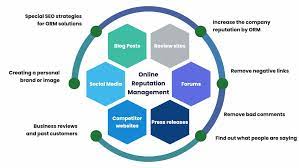Unveiling the Secrets Behind the Company’s Success: A Deep Dive into Organisational Culture
The Importance of Company Culture in Driving Business Success
In today’s competitive business landscape, company culture plays a crucial role in shaping the success and growth of organisations. A strong company culture not only attracts top talent but also drives employee engagement, productivity, and overall business performance.
Company culture encompasses the values, beliefs, and behaviours that define how employees interact with each other and with external stakeholders. It sets the tone for the work environment and influences how employees perceive their roles within the organisation.
One key benefit of a positive company culture is employee retention. When employees feel a sense of belonging and alignment with the company’s values, they are more likely to stay committed to their roles and contribute effectively to the organisation’s goals. This leads to lower turnover rates and higher levels of employee satisfaction.
Furthermore, a strong company culture fosters innovation and creativity among employees. When individuals feel empowered to voice their ideas and opinions without fear of judgment, they are more likely to think outside the box and come up with innovative solutions to challenges. This can give businesses a competitive edge in today’s fast-paced market.
Effective communication is also a key component of a healthy company culture. Open lines of communication foster transparency, trust, and collaboration among team members. When employees feel heard and valued, they are more likely to work together towards common goals and support each other in achieving success.
Ultimately, a positive company culture not only benefits employees but also has a direct impact on customer satisfaction and loyalty. When employees are engaged, motivated, and aligned with the company’s values, they are more likely to deliver exceptional customer service and create positive experiences for clients.
In conclusion, investing in building a strong company culture is essential for driving business success in today’s competitive environment. By prioritising values such as transparency, collaboration, innovation, and employee well-being, organisations can create a positive work environment that attracts top talent, retains employees, fosters creativity, enhances communication, and ultimately leads to long-term business growth.
Five Essential Tips for Enhancing Company Success
- Ensure clear communication among team members.
- Set achievable goals and provide necessary resources to reach them.
- Encourage a positive work culture that values collaboration and innovation.
- Regularly review and adapt business strategies to stay competitive in the market.
- Prioritize customer satisfaction to build long-lasting relationships.
Ensure clear communication among team members.
Ensuring clear communication among team members is crucial for fostering collaboration, productivity, and a positive work environment within a company. When team members communicate effectively, they can share ideas, provide feedback, and coordinate tasks more efficiently. Clear communication helps prevent misunderstandings, reduces conflicts, and ensures that everyone is on the same page regarding goals and expectations. By promoting open and transparent communication channels, companies can enhance teamwork, build trust among employees, and ultimately drive success in their projects and initiatives.
Set achievable goals and provide necessary resources to reach them.
Setting achievable goals and ensuring that employees have the necessary resources to reach them is essential for driving success within a company. By establishing clear and realistic objectives, employees are motivated to work towards tangible outcomes that contribute to the overall growth of the organisation. Providing adequate resources, whether it be training, tools, or support, empowers employees to perform at their best and achieve their goals effectively. This approach not only enhances productivity and performance but also fosters a culture of accountability, collaboration, and continuous improvement within the company.
Encourage a positive work culture that values collaboration and innovation.
Encouraging a positive work culture that values collaboration and innovation is essential for fostering a dynamic and productive environment within a company. By promoting teamwork and open communication, employees are empowered to share ideas, work together towards common goals, and drive creative solutions to challenges. This approach not only enhances employee engagement and satisfaction but also cultivates a sense of ownership and pride in the work being done. Ultimately, a culture that prioritises collaboration and innovation can lead to increased productivity, improved problem-solving capabilities, and a competitive edge in the market.
Regularly review and adapt business strategies to stay competitive in the market.
To maintain a competitive edge in the market, it is essential for companies to regularly review and adapt their business strategies. By continuously evaluating market trends, consumer preferences, and industry developments, businesses can identify opportunities for growth and innovation. Adapting strategies in response to changing dynamics allows companies to stay ahead of the competition, meet evolving customer needs, and position themselves for long-term success in a dynamic business landscape.
Prioritize customer satisfaction to build long-lasting relationships.
Prioritising customer satisfaction is a fundamental strategy for building enduring relationships with clients. By consistently delivering exceptional service and addressing their needs effectively, businesses can foster trust and loyalty among customers. When customers feel valued and their expectations are exceeded, they are more likely to become repeat buyers and advocates for the brand. Investing in customer satisfaction not only strengthens existing relationships but also attracts new customers through positive word-of-mouth recommendations. Ultimately, placing a high value on customer satisfaction is key to establishing long-lasting connections that drive business growth and success.












